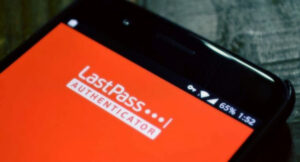Palo Alto Networks, a leading provider of cybersecurity solutions, recently conducted research that shows Baby Boomers are 76% more likely to use different passwords for online accounts than Gen Z.
Recent research from Palo Alto Networks indicates that Baby Boomers may be more likely to use different passwords for their online accounts than Gen Z. The study found that Baby Boomers are 76% more likely not to reuse passwords. However, despite this difference in practices between generations, half of all Australians targeted by a cyber attack still use the same password across multiple online accounts.
“It was certainly a novel surprise to see that older Australians practised better password hygiene than their younger, digitally-native counterparts,” said Palo Alto Networks VP ANZ Steve Manley.
“A more concerning surprise is that a minority of Australians use a password manager, even though the overwhelming majority of us have smartphones that come with a fairly strong one built in by default.”
Using the same password for multiple accounts is one of the most common mistakes in cybersecurity. This practice puts individuals at risk because if an attacker could access one account, they would then be able to access any other account using the same login credentials.
Moreover, it should be noted that hackers can obtain passwords through various methods, such as phishing attacks or data breaches and then use those credentials to log into multiple accounts owned by the same individual.
To protect against cyber threats and data breaches, users of all ages need to take steps towards creating secure online practices and habits. This includes refraining from reusing passwords across accounts or using weak passwords that can easily be guessed or circumvented by malicious actors. Additionally, it is recommended that users regularly change passwords to make sure they remain secure and up-to-date on their security protocols.

More Stories
Killnet and AnonymousSudan Collaborate to Launch Cyber Attacks on Western Organisations
In recent news, it has been reported that two Russia-sympathetic hacktivist groups, Killnet and AnonymousSudan, have allegedly launched a series...
$4000 Gone In An Instant: Mother Defrauded in Facebook Marketplace Car Deal
A mother of four is warning others to be cautious after believing she had purchased a safe and dependable car...
Shocking Scam: Sydney Family Loses $200K Life-Savings in Suncorp Spoofing Fraud
A family from Sydney has lost their life savings worth $200,000 due to a fraudulent scam. Peter and Madison, who...
Mysterious Money Transfer Leaves Couple Speechless: How They Got an Unsolicited $4000
A young couple in Melbourne claims their bank is making up a personal loan they do not understand. Ashley and...
Phishing + AI + Voice Cloning= Big Trouble: The New Way Criminals are Stealing Your Money
New Alert: Criminals use AI and voice cloning to trick you out of your money. Earlier this year, Microsoft unveiled...
‘Impossible to Spot’ Delivery Scam Email Targets Australia Post Customers – Don’t Fall Victim!
Unsuspecting shoppers should be cautious as a parcel delivery scam that is hard to distinguish targets Australia Post customers. Email...


